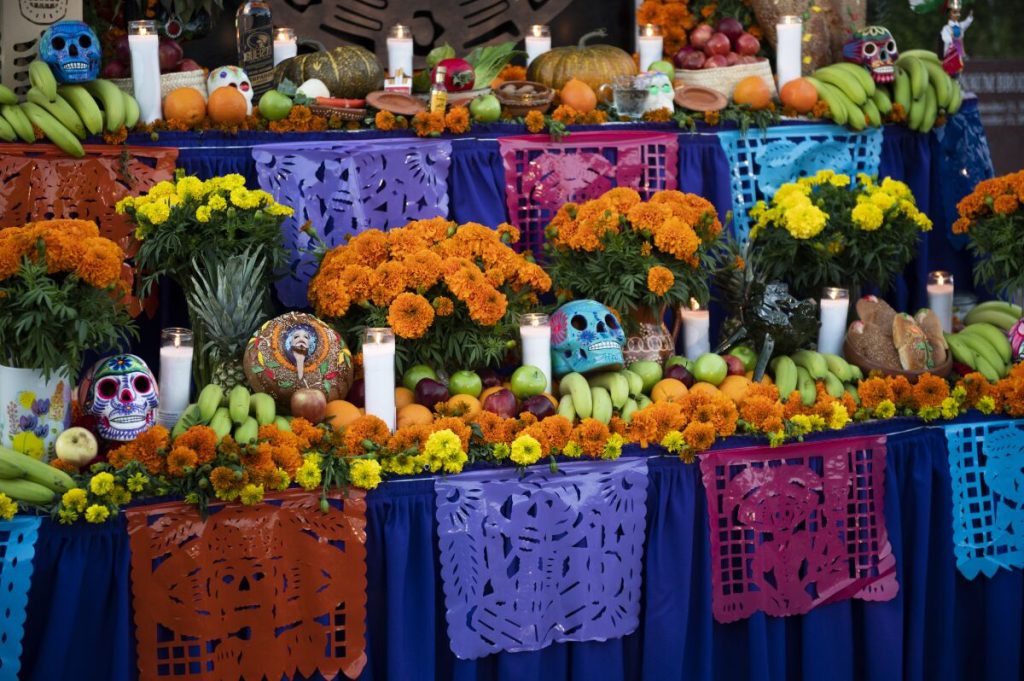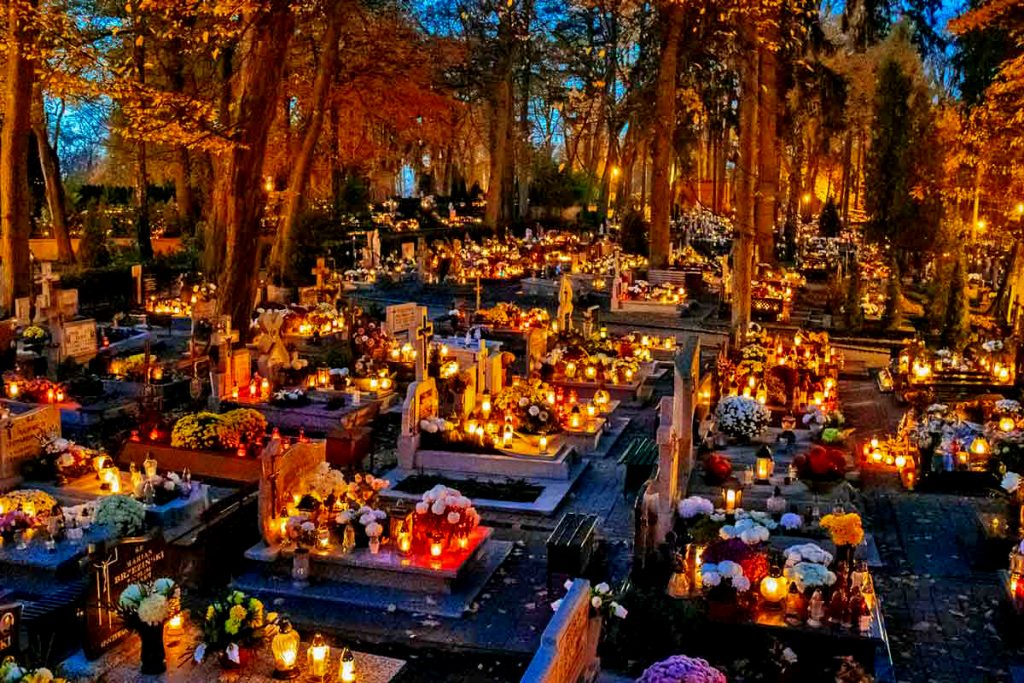In The Hatmaker’s Wife, the characters talk about going to the cemetery for the “anniversary of dead people day.” This day most resembles the holidays on November 1st and 2nd, of Día de los Muertos (Day of the Dead), All Saints’ Day, and All Souls’ Day.
These holidays celebrate and remember the dead. Día de los Muertos is a Mexican holiday, on November 1st, where the souls of the deceased return to their loved ones for one night and is celebrated with special food and celebrations. Similarly, the Catholic holidays of All Saints’ Day (November 1st) and All Souls’ Day (November 2nd) both remember the dead as well; All Saints’ Day commemorates saints and martyrs, and All Souls’ Day remembers individuals who have passed.

Though the “anniversary of dead people day” is only referred to as that, and a specific holiday is never given a name, if it is referencing a real holiday, it is most likely All Souls’ Day.
In Eastern Europe, where the Hetchmans and Meckel are from, All Souls’ Day is very widely celebrated. Though they are technically Catholic holidays, All Saints’ and All Souls’ Days have strong pagan roots and were being celebrated in the region long before Catholicism took root there. The celebration of these holidays is very widespread and secular in this region, taking parts of the Slavic holiday Dziady, including turning lighting bonfires on burial places into what is done today, placing lamps on graves. In Poland, when religion was forbidden due to socialism, these days were called Dzień Zmarłych or Święto Zmarłych, meaning “Day of the Dead,” removing the reference to religion while still allowing the people to celebrate their holidays. Like Día de los Muertos, All Souls’ Day can also be celebrated with special food, like soul cakes.

Though there is not a Jewish equivalent of these days, Jews have other ways of honoring the dead. On major holidays, Yahrzeit candles are lit in memory of those that have passed on. There are also Jewish traditions of naming babies after loved ones who have recently passed away, and many other ways of remembering the dead. Though they do not have one specific day for it, Jewish people celebrate their ancestors and deceased loved ones regularly.